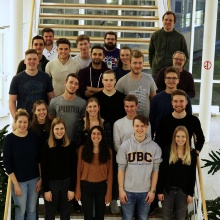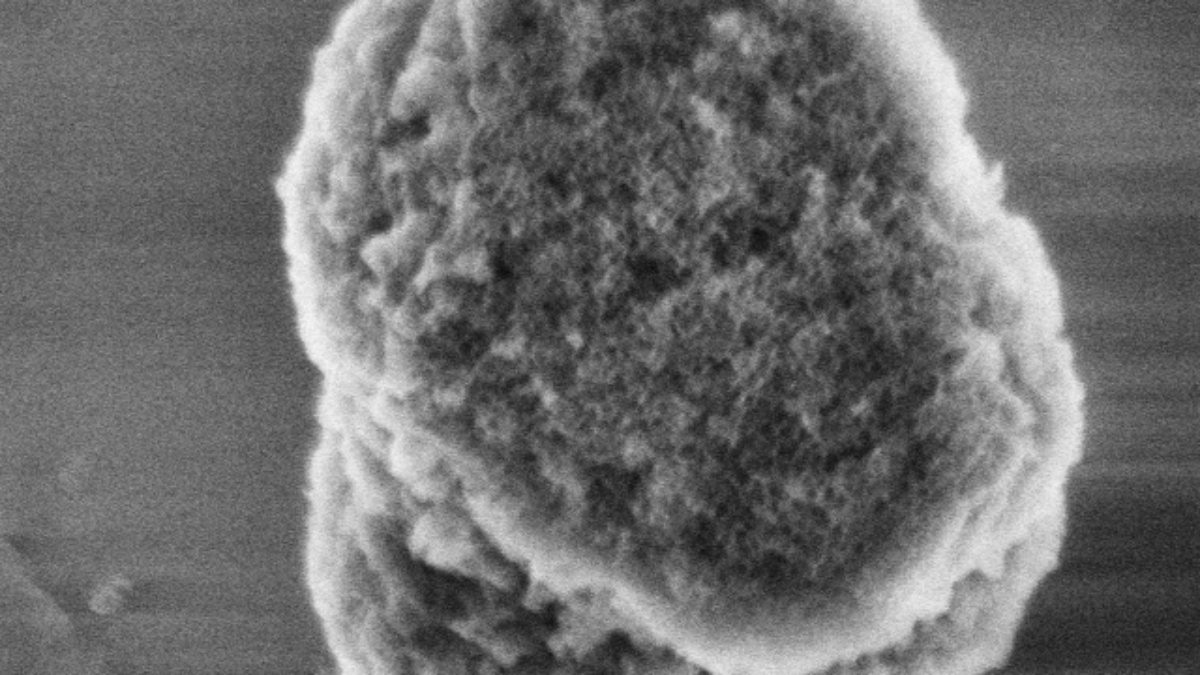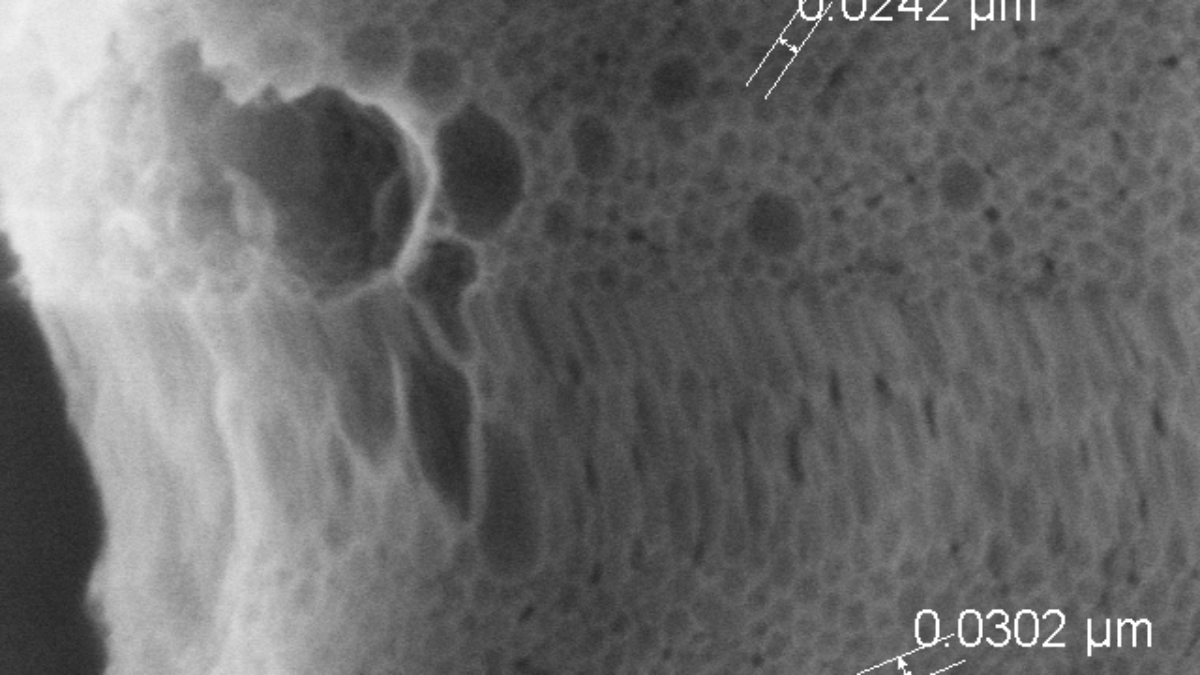The idea for the research project came to this year’s iGEM team from the University of Stuttgart while at a treatment plant. A total of 14 students spent roughly half a year independently developing the “Lac-Man” project. As part of the project, they developed an efficient water filter which removes medicine residues in waste water.
“When we were on an excursion to the treatment plant, the staff explained to us how much medicine residue there is in waste water. This bothered us for a long time afterwards, so we wanted to do something about the problem of water being contaminated by medicines”, says Christopher Adelmann, head of the iGEM team. For this research project, the international iGEM jury in Boston awarded the team from the University of Stuttgart with a gold medal.
In order to filter medicine residues from waste water, such as for example the painkiller Diclofenac, the students produced so-called silica foam. This is a porous and rigid foam, which is environmentally friendly and at the same time is resistant to solvents. The students embedded lacasses in its tiny pores. These enzymes can neutralize harmful substances in the water.
Because the lacasses get trapped in the foam, the enzymes are broken down more slowly and stay active for longer. Another advantage is that no genetically modified organisms need to be used. “We finished making the foam using the enzymes. Then it could be tested at treatment plants under real-world conditions”, says Adelmann.
The iGEM competition: interdisciplinary and diverse
iGEM is about more than just doing research and presenting the results. “We have to develop and organize the whole research project ourselves. For example, this also includes a project website. I’ve never learned how to program a website during my university studies. “We did learn how as part of the iGEM though”, explains the 23-year-old Technical Biology student. Taking part in the competition gives students plenty of opportunities and plenty of freedom to create their own ideas. The team works across disciplines. This year, the team included a Chemistry student and a Software Engineering student as well as students of Technical Biology. This makes the iGEM team an excellent example of lived diversity at the University of Stuttgart.
We can't be disappointed that things turned out a little differently to how we expected.
Christopher Adelmann, student leader of iGEM-Teams 2020
The 2020 competition was a particular challenge because of the corona pandemic. Students either couldn't get into the laboratory at all or could only do so in small groups. Instead of flying to Massachusetts and presenting their results in person, there were a lot of online meetings and video presentations. Nevertheless, the team made the best out of the situation, said Adelmann. “We can’t be disappointed that things turned out a little differently to how we expected. I quickly realized that we had to react to changes spontaneously to finish the project successfully.” The jury in Boston was impressed with their performance.
Professor Siemann-Herzberg, coordinator of the iGEM team, is also impressed with the students’ performance. “I am really impressed and also very proud of this year’s student iGEM team! I’m particularly impressed because of all that’s happened this year. No laboratory, holding meetings over the Internet and constantly learning from the new exchange forums online was a real challenge.” “I would never have believed that the students would be able to develop their knowledge so effectively and so ably. You don't always need to dictate everything to them or spoon-feed them everything. When they put their mind to it they can deal with anything, even without regular lectures and assessments. As far as I’m concerned iGEM is the ideal learning forum”.
iGEM
iGEM stands for International Genetically Engineered Machine competition. It is the largest and most prestigious competition in the world for students in the field of synthetic biology, which has been awarded at the Massachusetts Institute of Technology (MIT) in Cambridge, USA every year since 2004. Many universities from around the world enter so-called iGEM teams, which are made up of ten to 20 students. Teams from the University of Stuttgart have taken part since 2017.
The young scientists develop their own project independently over the space of about seven months. Their research findings must be submitted in writing. The teams then showcase their project and the results at the competition in Boston in November, where they compete against other teams. This year, the presentations took place online.





